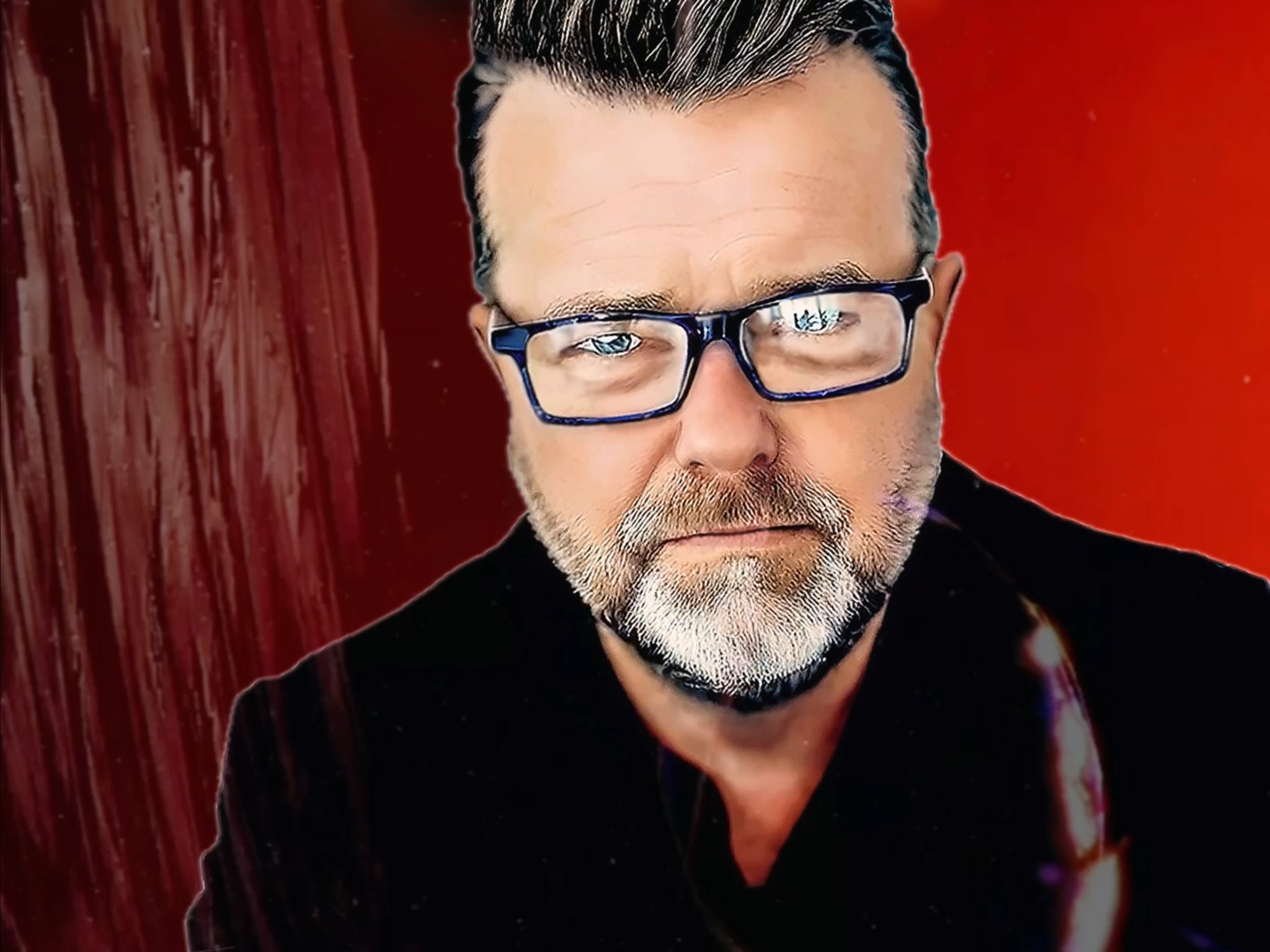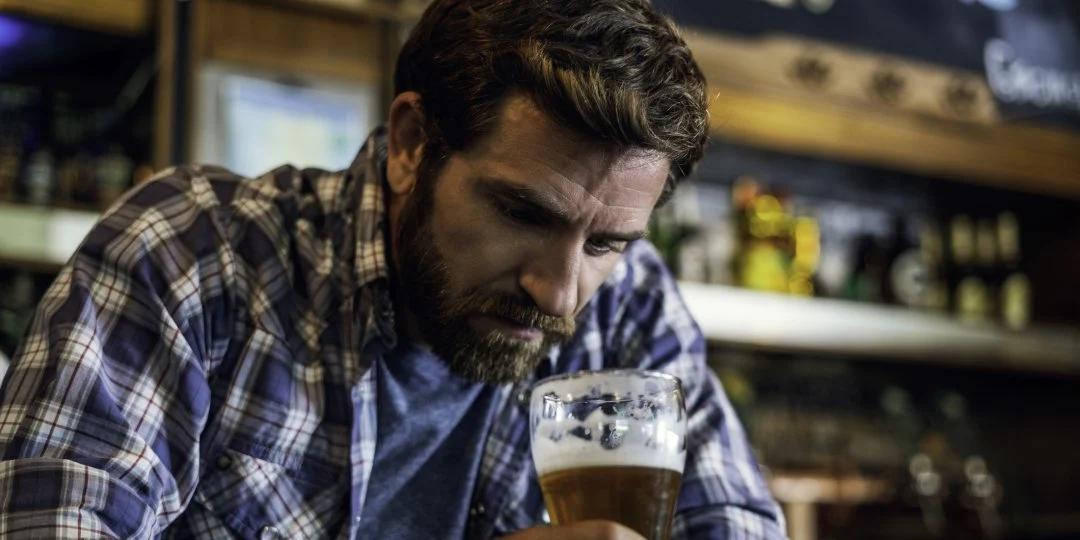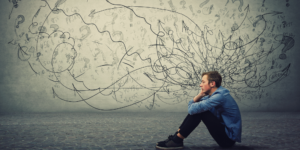When you think of depression, what comes to mind? For many, it’s feeling sad or “down.” But for men, depression doesn’t always look like what we expect. “Specifically for men, depression doesn’t usually show up as sadness or feeling blue, which is how we traditionally think about it,” says Dr. Jesus Lizarzaburu, a family physician focused on health advocacy. “It may instead show up as irritability, a short fuse, and a loss of enjoyment in things they once loved.”
Dr. Mike Sevilla, a family physician specializing in mental health and substance use disorders, adds that recognizing subtle signs, like avoiding friends or small shifts in behavior can prevent more serious symptoms like isolation or substance abuse.
If you’re wondering whether your own lack of motivation or occasional anger outbursts could be early signs of something more serious, it might be time to consult a professional. As Dr. Jeff Temple, a licensed psychologist and director of UTMB’s Center for Violence Prevention, puts it, “The earlier you do something about it, the better.”
It’s no secret that men are often hesitant to talk about mental health. But left unchecked, depression can take a toll on your quality of life and relationships. “I wish more men understood that it’s OK to not be OK,” says Temple. “Being depressed doesn’t mean you failed as a man, husband, or father. It just means you’re human and might need some extra support.”
Here are a few unexpected symptoms of depression that all men should be aware of—and some steps you can take if you recognize them in yourself or someone else.
Unexpected Signs of Depression in Men
1. Changes in Personality
Dr. Sevilla has noticed a rise in mental health issues, including depression, since the pandemic began. For men, depression often shows up as subtle changes in behavior, such as avoiding social interactions, feeling quick to anger, or showing signs of frustration. “Unexpected signs of depression can include personality changes—sometimes they’re subtle, other times more obvious,” Sevilla explains.
Think about it: If you’re normally pretty easygoing but find yourself snapping at others over small things, or withdrawing from the people you used to spend time with, it might be worth paying closer attention. These shifts could be depression making itself known in ways that feel outside of the “sadness” stereotype.
2. Changes in Substance Use
Another way depression can sneak up on men is through shifts in their relationship with substances like alcohol or recreational drugs. If you’ve typically been a moderate drinker but find yourself reaching for another drink more frequently, it could be a signal of a deeper issue. “Most people recognize substance use as a potential sign of depression, but an unexpected sign might be using more substances than usual, or mixing them in new ways,” says Sevilla.
Personally, I know guys who would have a drink here or there, but when they started going through tough times, they started drinking more often. It didn’t look like depression right away, until you step back and realize that their substance use had become a way to cope.
3. Losing Interest in Things That Used to Bring You Joy
One of the biggest red flags for depression is anhedonia, which means losing interest in things that used to make you happy. “The most consistent sign of depression I see in men is anhedonia,” says Dr. Lizarzaburu. “If you used to love fishing with your buddies but can’t find the motivation to go anymore, that could be a sign of depression creeping in.”
For me, this one hits close to home. I used to love working out, but when I went through a rough patch, I just couldn’t bring myself to hit the gym. It was like everything I used to enjoy had lost its spark.
4. Sleep Disruptions and Changes
Dr. Lizarzaburu also notes that changes in sleep patterns can be tied to depression. Maybe you used to sleep like a rock, but now you’re struggling with insomnia or waking up multiple times a night. Or maybe the opposite happens, and you find yourself sleeping way more than usual, even though you’re still tired. Sleep disturbances are often overlooked as signs of depression but can be major indicators that something is off.
What to Do If You Notice These Signs in Yourself or Others
If any of this sounds familiar, you might be wondering what to do next. Dr. Temple has some practical advice: “If you’ve had depression before, it’s smart to seek help through medication and talk therapy right away. If this is a new feeling, start by jumpstarting yourself, do things you enjoy, even if it’s a struggle. Get together with friends, work out, or just get out of the house.”
In other words, try to keep yourself active, even if you have to push through a bit. But if none of these things seem to help after a couple of weeks, or if your symptoms start affecting your work or relationships, then it’s probably time to talk to a healthcare professional. They might recommend cognitive behavioral therapy (CBT), which is designed to help you challenge negative thoughts and build healthy habits. Medication could also be an option, depending on your situation.
If you see signs of depression in someone else, don’t hesitate to check in on them. It might feel uncomfortable, but reaching out could make a huge difference. Dr. Sevilla says that even a simple conversation can set someone on the path to recovery.
Dr. Lizarzaburu shares a story that really drives this point home: “I had a patient come in who didn’t think he needed to be there—his coworkers encouraged him to make an appointment. He didn’t feel depressed, but his PHQ-9 questionnaire, a tool used to assess depression, showed he was. We started him on treatment, and a few weeks later, his coworkers told him, ‘Whatever you’re taking, keep taking it.’ Apparently, he had become so irritable that no one could work with him.”
This story shows how depression can affect your daily life, sometimes in ways you don’t even realize until someone else points it out. That’s why it’s so important to keep an eye on yourself and those around you, especially if you notice any of these unexpected symptoms.
Taking the Next Steps
If you’re dealing with depression, the first thing to remember is that you’re not alone—and you don’t have to handle it alone, either. Reaching out to a mental health professional, a friend, or even a family member can make a huge difference. It might be tough to admit you need help, but as Dr. Temple points out, there’s no shame in it: “I wish more men knew that needing help doesn’t mean you’re any less capable. It just means you’re human.”
If you’ve noticed signs in someone else, sometimes a simple “How are you really doing?” can open the door to an important conversation. It might be uncomfortable, but that little nudge could make a big difference in someone’s life. Depression isn’t something that any of us need to go through alone, and spotting these unexpected symptoms can be a first step toward finding support and healing.









